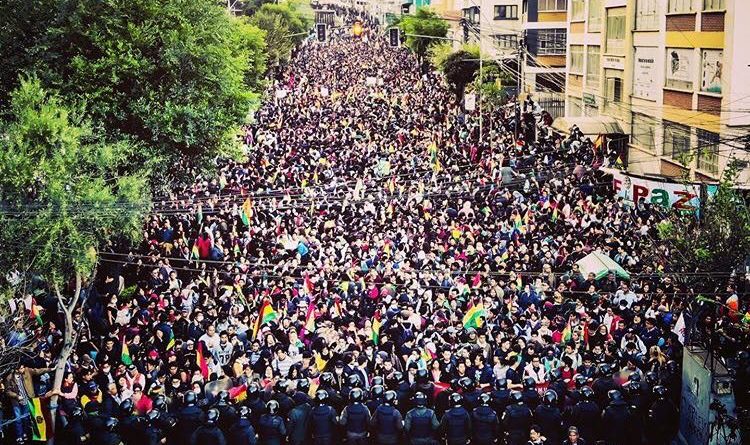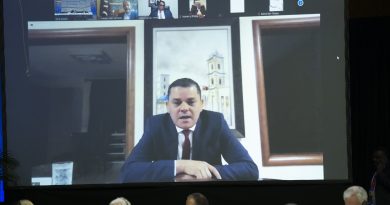Lack of Dialogue and Violence Sustain Bolivia’s Political Crisis
Daniela Maquera
Staff Writer
Disruptive protests continue in Bolivia’s main cities, following President Evo Morales’ resignation on Sunday, November 10. Jeanine Áñez, a senator from the country’s conservative opposition party, assumed the presidency two days later. Although her appointment was cheered by allies in Congress, the decision was passed without a majority, which is mostly composed of the former president’s MAS party (Movement Towards Socialism), making the process unconstitutional
After holding the title of Bolivia’s first leader from an indigenous community, the former coca farmer-turned president drew controversy by defying constitutional limits to run for a fourth term in October’s election. Suspicion had been growing about the legitimacy of the first round of elections, as results suggested that he won an outright majority. The Organization of American States (OAS), a regional body, found “clear manipulation” of the vote and called for the annulment of the counted votes, BBC News reports.
Although Morales agreed to hold new elections, his main rival, Carlos Mesa, opposed his participation in the new round, asserting “Morales should not stand in any new vote.” Bolivians, many who felt that the previous elections were rigged, took their anger to the streets, creating widespread instability. This pressured the chief of the armed forces, General Williams Kalimany, to urge Morales to step down, according to The Guardian. After Mexico granted Morales political asylum, he left Bolivia on November 10, claiming that he was the victim of a right-wing “coup” backed by the United States.
The country’s vice president resigned along with the leaders of both the Senate and the Lower House. Áñez, then the Deputy Senate Leader, declared herself interim president of Bolivia. Intense backlash resulted from this action, however, since her appointment did not count with the participation of all members of Congress. Violence followed as interim president Áñez asserted that her exiled predecessor should face prosecution should he return to the country. This was viewed as a sign of suppression to many indigenous communities, which gave Morales massive support and served as a powerful voice during his presidency.
In response to Morales supporters pushing for his return, Áñez’s government responded with the use of force and a confrontation that led to the burning of the Wiphala flag, a symbol of indigenous Andean communities. The Guardian states on Friday November 15, peaceful gatherings of indigenous protesters in the city of Sacaba soon turned into clashes that resulted in the nine deaths and dozens of injuries caused by the military.
Bolivia’s chief human rights investigator stated that the violence has resulted in at least 21 deaths to date. The Los Angeles Times says, Morales accused Añez’s administration on Twitter of issuing a new decree that shields military personnel from responsibility for acts of violence. The minister of the presidency, however, reacted to these accusations by referring to the decree as a series of guidelines to ensure that the military “acts in proportion with every situation”, according to the Bolivian daily news organization, El Deber.
Alarm is rising in the international community at signs of human rights abuses and at the use of disproportionate force in Bolivia. “Repressive actions by the authorities will simply stoke that anger even further and are likely to jeopardize any possible avenue for dialogue,” stated Michelle Bachelet, the United Nations High Commissioner for Human Rights. Rather than bringing about reconciliation, the use of the military forces is fueling tensions among Bolivians. According to The Washington Post, the interim president has not changed her decree and further declared that no dialogue will take place with Morales supporters because “irrationality is what rules among them.”


